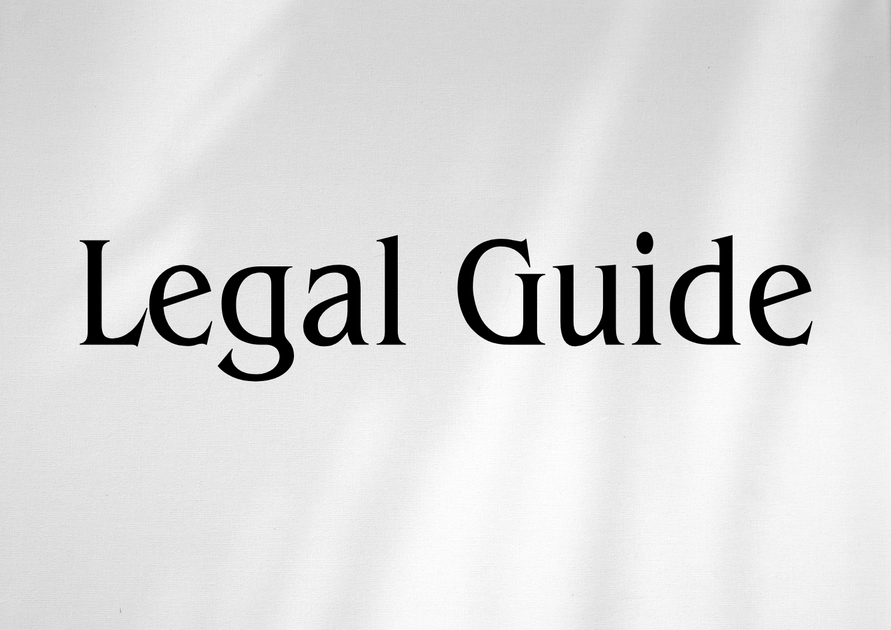Introduction to Safety Management Systems for UAE Airlines
The aviation sector in the United Arab Emirates (UAE) has witnessed significant transformation and global recognition over the past decade, marked by world-class airlines, state-of-the-art airports, and a steadfast commitment to safety. As the nation positions itself as a central hub for international air travel and logistics, the legal and regulatory framework governing airline safety has become more rigorous, sophisticated, and aligned with global best practices. Among the most pivotal developments is the implementation and enforcement of Safety Management Systems (SMS) within UAE airlines—a subject of critical importance to business leaders, HR executives, compliance professionals, and legal practitioners alike. Recent legislative updates, most notably in the context of the Civil Aviation Law and related federal decrees, underscore the government’s unwavering focus on aviation safety and legal compliance, reflecting the UAE’s Vision 2030 and its commitment to international ICAO standards. This comprehensive analysis offers a consultancy-grade overview of SMS obligations for UAE-based airlines, practical compliance strategies, and actionable legal insights in light of Federal Law No. 20 of 2023 (the updated UAE Civil Aviation Law), General Civil Aviation Authority (GCAA) regulations, and government directives for 2025 and beyond.
Table of Contents
- Legal Framework for Safety Management Systems in UAE Airlines
- Core Obligations and Components of SMS under UAE Law
- Implementing SMS: Legal Practicalities for UAE Airlines
- Comparative Analysis: Previous vs. Current SMS Regulations
- Case Studies and Practical Applications
- Risks of Non-Compliance with SMS in the UAE
- Legal Compliance Strategies and Checklist for UAE Airlines
- Conclusion: The Future of SMS Legal Compliance in UAE Aviation
Legal Framework for Safety Management Systems in UAE Airlines
Federal Law No. 20 of 2023 and Its SMS Mandate
Safety Management Systems in the UAE aviation sector derive their primary legal authority from Federal Law No. 20 of 2023 (the “UAE Civil Aviation Law”), which directly implements the International Civil Aviation Organization’s (ICAO) Annex 19 standards. The General Civil Aviation Authority (GCAA) further regulates practical compliance through specific sectoral regulations, most notably the “CAR (Civil Aviation Regulations) Part X—Safety Management Systems.”
Key legal mandates now require every UAE-registered airline, approved maintenance organisation, and aviation service provider to design, implement, and continually improve a robust SMS as a precondition for certification, operation, and continued regulatory approval.
Core Sources of Law
- Federal Law No. 20 of 2023 (UAE Civil Aviation Law)
- GCAA Civil Aviation Regulations, Part X (SMS)
- ICAO Annex 19 — Safety Management
- Ministerial Circulars, Safety Directives, and GCAA Guidance Materials (2024/2025)
These pieces collectively form the backbone of compulsory SMS implementation and oversight for airlines operating in or from the UAE.
Legislative Intent and Context
The legislative approach is risk-based, proactive, and oriented toward the continual improvement of safety outcomes rather than mere incident reporting. The renewed emphasis reflects an adaptation of internationally benchmarked safety principles, aiming to safeguard passengers, personnel, assets, and national reputation in an increasingly complex aviation ecosystem.
Core Obligations and Components of SMS under UAE Law
Key Legal Requirements
Under the newest legal and regulatory framework, the following SMS elements are compulsory for UAE airlines:
- Safety Policy and Objectives: A clear, documented safety policy signed by accountable executives, denoting commitment, resource allocation, and legal accountability.
- Safety Risk Management: Processes for hazard identification, risk assessment, and formal risk mitigation, embedded within organizational practice.
- Safety Assurance: Ongoing processes for monitoring, auditing, and evaluating SMS performance, including mandatory regulatory reporting and review.
- Safety Promotion: Mechanisms for safety education, training, internal communication, and a ‘just culture’ that encourages voluntary reporting without fear of reprisal.
- Documentation and Recordkeeping: Complete traceability and secure storage of all SMS-related documents, in compliance with GCAA standards.
Accountability and Appointed Roles
Federal Law No. 20 of 2023 mandates that every certified airline designates an Accountable Executive with ultimate legal responsibility for SMS implementation, supported by a Safety Manager and safety committee with defined terms of reference and reporting lines.
Integration with Employment Law
HR departments must ensure SMS roles, responsibilities, and reporting obligations are reflected within employment contracts and internal policies. Failure to do so may result in labour law breaches and undermine airline compliance status.
Implementing SMS: Legal Practicalities for UAE Airlines
As a matter of practical compliance, airlines must move beyond box-ticking exercises and develop a deeply integrated, organization-wide system—subject to both internal monitoring and external GCAA inspection.
1. Internal Governance Structures
Developing clear governance matrices is essential:
- Appoint qualified individuals in key SMS positions
- Document reporting lines and escalation protocols
- Ensure regular board-level review of SMS effectiveness
2. Staff Training and Legal Awareness
Regular, role-specific training is a statutory obligation. Airlines must maintain updated records of training delivered, supported by competency assessments and refresher courses aligned with the latest ministerial circulars. All staff must understand the legal parameters of their reporting obligations under both UAE Civil Aviation Law and internal SMS.
3. Integration with Other Regulatory Obligations
SMS requirements now overlap with several parallel regimes, including:
- Occupational health and safety standards
- Employment and disciplinary law
- Data protection (especially for incident reports containing personal data)
Legal counsel should review all SMS documents and processes for cross-compliance with Federal Law No. 33 of 2021 (UAE Labour Law), Federal Decree-Law No. 45 of 2021 (Data Protection Law), and other sectoral obligations.
Suggested Visual: SMS Implementation Flow Diagram
This diagram would illustrate the flow from executive commitments through hazard reporting, investigation, corrective actions, and regulatory feedback loops. Use it to support board-level and operational briefings.
Comparative Analysis: Previous vs. Current SMS Regulations
The table below highlights the key differences between prior SMS frameworks and the current requirements in effect as of Federal Law No. 20 of 2023 and related GCAA updates for 2025:
| Provision | Pre-2023 Law/Regulation | Current Law (2023/2025) |
|---|---|---|
| Mandatory SMS Implementation | Best practice for major airlines; not always mandatory for all service providers | Legally required for all certified airlines and aviation service organisations |
| Accountable Executive Role | Not explicitly defined; responsibility dispersed | Clearly designated with personal legal accountability and reporting |
| Safety Reporting System | Voluntary reporting, limited protections | Mandatory, non-punitive reporting with staff protections |
| Regulatory Oversight | Periodic audits, incident-driven | Continuous monitoring, risk-based, and linked to operational approvals |
| Sanctions for Non-Compliance | Warning, possible fines; few specific sanctions | Graduated sanctions including suspension, license revocation, personal liability for executives |
Consultancy Insight:
Legal accountability is now direct, personal, and severe; UAE airlines must elevate compliance beyond procedural paperwork to embedded corporate governance.
Case Studies and Practical Applications
Case Study 1: Failure to Properly Document SMS Training
Scenario: A UAE-based airline underwent a GCAA inspection. The airline had conducted SMS training but failed to update staff training registers in line with GCAA requirements.
Legal Analysis: Under CAR Part X, inadequate recordkeeping constitutes a breach, irrespective of actual training outcomes. The airline was issued an Abatement Notice, required to repeat parts of training, and risked operational penalties if non-compliance recurred. Senior management faced warnings, highlighting the personal responsibility of appointed executives.
Case Study 2: Safety Reporting and ‘Just Culture’
Scenario: An incident occurred, and a staff member hesitated to report a technical fault due to fear of disciplinary consequences.
Legal Analysis: Current law protects voluntary reporters from reprisals, as mandated by Federal Law No. 20 of 2023 and related ministerial guidance. Non-compliance not only exposes the company to regulatory censure but may also trigger employment tribunal claims if adverse action is taken against the reporter.
Hypothetical: Data Protection Intersection
Scenario: An incident report includes references to personal data, and a data breach occurs when the report is inadequately secured.
Legal Analysis: SMS documentation falls within the scope of Federal Decree-Law No. 45 of 2021 on Data Protection. Airlines must implement technical and organizational measures to prevent unauthorized access, maintaining compliance with both aviation and data privacy laws.
Risks of Non-Compliance with SMS in the UAE
Penalties, both administrative and criminal, for failing to adhere to SMS obligations are clear and stringent. The GCAA wields significant enforcement powers, including immediate suspension of operational permits and fines, as well as onward referral for criminal prosecution in the event of gross negligence or willful violation.
| Type of Non-Compliance | Risk/Consequence |
|---|---|
| Failure to implement SMS | Revocation or suspension of Air Operator Certificate |
| Poor training and documentation | Abatement notices, mandatory corrective actions, increased inspections |
| Lack of safety reporting system | Regulatory fines (usually AED 100,000+), reputational harm |
| Retaliation against reporters | Employment tribunal claims, increased regulatory scrutiny |
| Management negligence | Personal legal liability, disqualification from office, criminal investigation |
Suggested Visual: Penalty Comparison Chart
Display different non-compliance scenarios with corresponding penalties, using colour coding to highlight high-risk areas for managers and compliance teams.
Legal Compliance Strategies and Checklist for UAE Airlines
Practical Compliance Steps
- Appoint and empower an Accountable Executive, Safety Manager, and SMS Committee.
- Review and update written safety policy to reflect the latest legal obligations (incorporating 2025 GCAA guidance).
- Roll out comprehensive staff training and document delivery, refresher cycles, and assessment outcomes.
- Establish robust incident reporting systems and regularly audit risk identification channels.
- Integrate SMS with data protection and employment law compliance, updating privacy notices and employment contracts.
- Maintain complete SMS records, retrievable for GCAA inspections and internal audit.
- Engage external legal counsel for annual SMS compliance reviews, policy stress-testing, and staff briefings.
Suggested Visual: SMS Compliance Checklist Table
List key tasks (with tick boxes) as a visual reference for compliance teams to use and display during internal audits.
Conclusion: The Future of SMS Legal Compliance in UAE Aviation
UAE airlines face a new era of legal accountability and operational responsibility. The SMS framework, as cemented by Federal Law No. 20 of 2023 and enforced by the GCAA, positions the nation at the vanguard of aviation safety law, integrating international standards with robust local enforcement. In this dynamic regulatory environment, legal compliance is not merely a regulatory footnote but a core component of sustainable business practice, brand reputation, and operational viability. Board members, executives, HR, and safety managers must embrace both the letter and spirit of SMS law, integrating it into every layer of their operation.
Looking forward, we anticipate continued alignment with global standards, increased use of data analytics in SMS compliance, and even tighter integration between aviation safety, data protection, and employment law. The competitive advantages are evident: compliant airlines enjoy operational continuity, trust of regulators and customers, and protection against potentially catastrophic legal and reputational risks.
For UAE airlines and service providers, ongoing engagement with qualified legal counsel remains the most effective way to ensure SMS compliance, proactively address legislative changes, and turn regulatory requirements into operational strengths.




